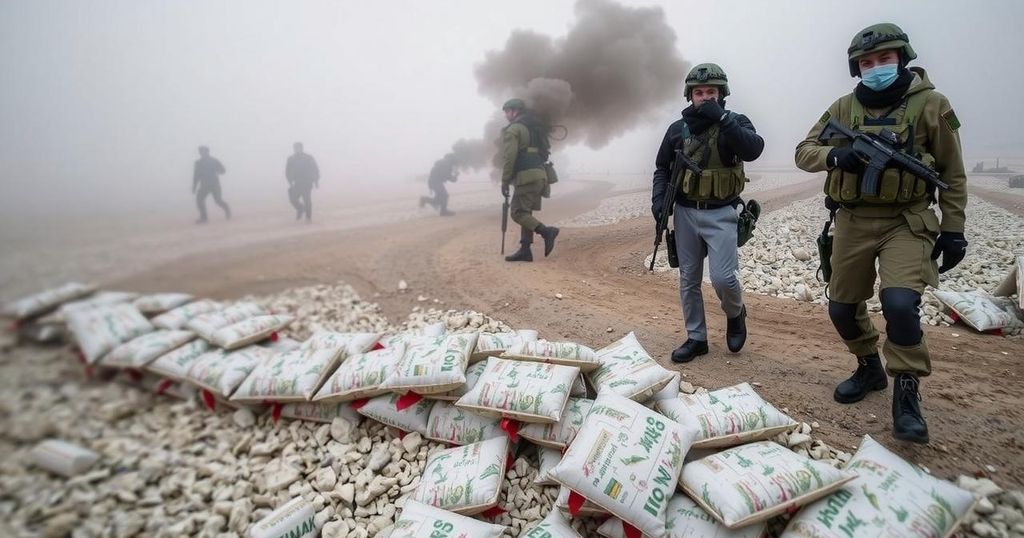Cease-Fire Extended in Manbij Amid Ongoing Diplomatic Efforts

The cease-fire in Manbij, northern Syria, has been extended amid U.S. efforts to broker a lasting peace between Kurdish and Turkish-backed forces. The area has been a significant conflict zone since the civil war, marked by previous clashes and the rise of ISIS. This extension is part of a broader diplomatic strategy to de-escalate tensions and stabilize the region amid complex historical dynamics.
A cease-fire agreement in Manbij, northern Syria, between Kurdish and Turkish-backed forces has been extended for several days amidst ongoing diplomatic negotiations aimed at establishing a stable armistice. Announced by Matthew Miller, a State Department spokesman, this pause in hostilities is significant given the area’s history of clashes and the broader regional dynamics influenced by American interests in maintaining peace. The extension is seen as a step towards de-escalation as U.S. and international officials work to mediate tensions in what has been a volatile context.
Manbij has been pivotal in the Syrian civil war, witnessing control shifts since the Islamic State took it in 2014, followed by its liberation two years later by Kurdish-led forces with U.S. support. The city recently became contested territory again, leading to the Kurdish forces agreeing to a withdrawal under a cease-fire that was initialed on December 10, with American involvement to facilitate this agreement. The cease-fire requires Kurdish troops to retreat back to the eastern bank of the Euphrates River, which historically served as a boundary between Kurdish forces and Turkey’s allies in the region.
American officials have long relied on Kurdish-led groups as effective partners in combating ISIS; however, Turkey has perceived these forces as a threat due to alleged ties with the PKK, a designated terrorist organization by Turkey and the United States. The ongoing situation underscored a continual struggle between regional interests, with Turkish forces having clashed with Kurdish positions in Kobani, which holds critical historical significance for the latter.
In efforts to assuage Turkish security concerns and foster a stable environment, Kurdish military leadership has expressed readiness to create a demilitarized zone in Kobani under U.S. supervision. However, uncertainty looms regarding the willingness of the incoming U.S. administration to support such initiatives amidst their historical reluctance to maintain a military presence in Syria. The complexity of Turkey’s concerns continues to be a challenging diplomatic issue as the Biden administration engages with Turkish officials regarding these tensions.
The cease-fire in Manbij highlights the intricate dynamics of the Syrian conflict, particularly surrounding Kurdish and Turkish interests. American forces’ involvement has been crucial since the rise of ISIS, providing support to Kurdish-led groups to reclaim territories. However, Turkey’s long-standing opposition to Kurdish forces complicates the situation, given their associations with the PKK. The city of Manbij serves not only as a geographical point of contention but also symbolizes the broader struggle for power and influence among various factions in the ongoing civil war.
In conclusion, the extended cease-fire in Manbij represents a crucial diplomatic effort to alleviate tensions between Kurdish and Turkish-backed forces in northern Syria. The ongoing negotiations and American mediation are vital for preventing renewed hostilities and fostering longer-lasting peace in a region marked by complex rivalries and historical conflicts. As diplomatic discussions advance, the future of this cease-fire and its impact on regional stability remains uncertain, requiring careful navigation of Turkey’s security concerns and Kurdish aspirations.
Original Source: www.nytimes.com








